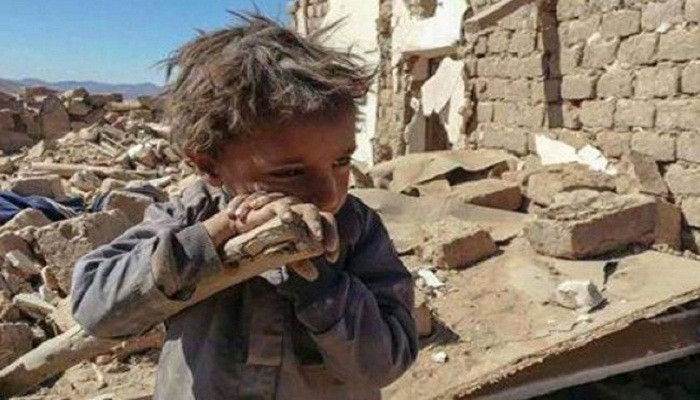UNICEF Says Nearly 10 Million Children Need Urgent Help in Yemen
YemenExtra
The United Nations Children’s Fund (UNICEF) has warned that nearly 10 million children in Yemen are in immediate need of humanitarian assistance as the Saudi-led war against the crisis-hit country continues.
UNICEF’s Yemen office released a statement on its official Facebook page on Thursday, saying that most children in Yemen do not have access to basic medical care, adequate nutrition, fresh drinking water, suitable sanitation and education.
Also on Thursday, UN humanitarian coordinator in Yemen Jamie McGoldrick warned of growing risk of famine in the country, saying aid groups struggle to find funds as they have pulled resources from the campaign against malnutrition to battle the cholera outbreak in the impoverished Arab nation.
“We are trying to do our best, but it is very much beyond what we can cope with,” McGoldrick said at a news conference in the capital city of Sana’a.
Cholera has swept Yemen with alarming velocity in what the United Nations has described as “the worst cholera outbreak in the world.”
UN spokesman Stephane Dujarric told reporters on Wednesday that the cholera outbreak that started in April has spread to all the 21 governorates in Yemen.
Dujarric said there have been 270,000 suspected cases of cholera and over 1,600 deaths from the disease in Yemen since late April.
Children under the age of 15 made up 41 percent of those cases and people older than 60 accounted for 33 percent of the deaths, Dujarric pointed out.

The World Health Organization (WHO) and its partners received 400 tons of medical supplies, including 30 ambulances and kits and equipment, to treat 10,000 people in Aden and Hodeida, the UN spokesman said.
Cholera is an acute diarrheal infection that is spread through contaminated food or water. It can be effectively treated with the immediate replacement of lost fluids and salts, but without treatment it can be fatal.
The Saudi-led war on the Arab world’s poorest country, which started in March 2015, has taken a heavy toll on Yemen’s health facilities and caused severe medicine shortages there.
Latest UN figures show that the conflict in Yemen has left 18.8 million of the country’s 28 million population in need of humanitarian aid and almost seven million on the brink of famine.

